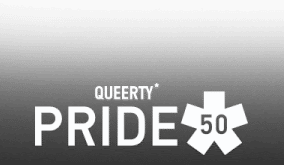
While many classic jazz standards live on for decades through countless covers, only a few speak to the queer experience with such profound resonance. “Lush Life” by Billy Strayhorn is a song that does just that, and this melodic masterpiece has echoed across generations, being covered by divas like Nancy Wilson, Donna Summer, Queen Latifah, and Lady Gaga.
Billy Strayhorn was an American jazz composer, pianist, lyricist, and arranger known for his long-term collaboration with Duke Ellington and as the first openly gay jazz musician. Initially aspiring to be a classical pianist but shifting to jazz due to limited opportunities for black classical musicians, Billy Strayhorn met Duke Ellington in 1938 and impressed him enough to join his band in New York City.
Despite his significant contributions spanning over three decades to Ellington’s music, including creating sophisticated arrangements and co-writing famous compositions like “Take the ‘A’ Train” and the soundtrack to Anatomy of a Murder, Strayhorn often went uncredited and struggled with his hidden role.
Your dose of fabulosi-TEA
Subscribe to our newsletter for your front-row seat to all things entertainment with a sprinkle of everything else queer.
Strayhorn would console himself with drinking and, sadly, died of cancer and alcohol abuse in 1964 at the age of 51. His song “Lush Life” (1936), is a torch standard that sadly defines his own short, intense life. The song is well known as a harmonically complex and melodic tune, and less well known is the complex, dramatic meaning behind it.
Some speculate that Strayhorn wanted to keep “Lush Life” for himself instead of letting it get associated with Ellington as “Take the A Train” and so many other compositions were. This was a personal song and as an openly gay man, alluded to his sexuality in the use of the word “gay” in the lyric. Ultimately, “Lush Life” was very important to Strayhorn because it chronicled his coming of age and no one else’s.
I used to visit all the very gay places
Those come-what-may places
Where one relaxes on the axis
Of the wheel of life
To get the feel of life
From jazz and cocktails
The lyrics manage to convey such raw feelings of melancholy and despair, revolving around wanting no more than to be loved, but ultimately leaving oneself to “rot with the rest” through a lush, cocktail-induced lifestyle. Mirroring Strayhorn’s own life and resonating with narratives familiar in queer storytelling, the song has a touching quality to it for gay audiences.
Covers of the song would ensue well past Strayhorn’s passing, establishing the track as a hidden gem in jazz music and a staple for many a queer icon. In 1967, Nancy Wilson’s cover was featured as the title track of her 11th studio album, offering a lively, colorful rendition of the track.
Donna Summer’s tenth studio album concluded with Summer’s take on Strayhorn’s timeless song, providing a dreamy resolution not only to her album but to the song’s endless wonderment.
Modern renditions of the track include Queen Latifah’s cover in the 1998 New York City comedy-drama film Living Out Loud, as well as the closing track of her 2004 cover album of jazz and R&B songs titled The Dana Owens Album.
More notably, Lady Gaga covered “Lush Life” on her first collaborative album with Tony Bennett, 2004’s Cheek to Cheek.
If the song’s lyricism or numerous covers wasn’t enough, Strayhorn’s position as one of the first LGBTQ+ pioneers in jazz proves the track’s enduring queer legacy in music history. Its storytelling evokes a sense of wonder and affirmation in gay audiences that often can’t be put into words, only in song, and Strayhorn’s “Lush Life” will continue to live on as a timeless soliloquy for those who live a “lush life.”
Don't forget to share:















































JW
I’ve always and still is very partial to Donna Summer’s rendition to this day. When I heard it..I just immediately fell in love with her interpretation and to me…its timeless because it also displayed as I’ve always known her vocal ability beyond her dance music.
Man About Town
It was quite a challenge figuring this song out on the piano, but I finally got it down. My favorite renditions are the ones by Johnny Hartman and Linda Ronstadt.
What’s amazing about this song is, considering how jaded and cynical the words are, Strayhorn wrote it when he was only 16!